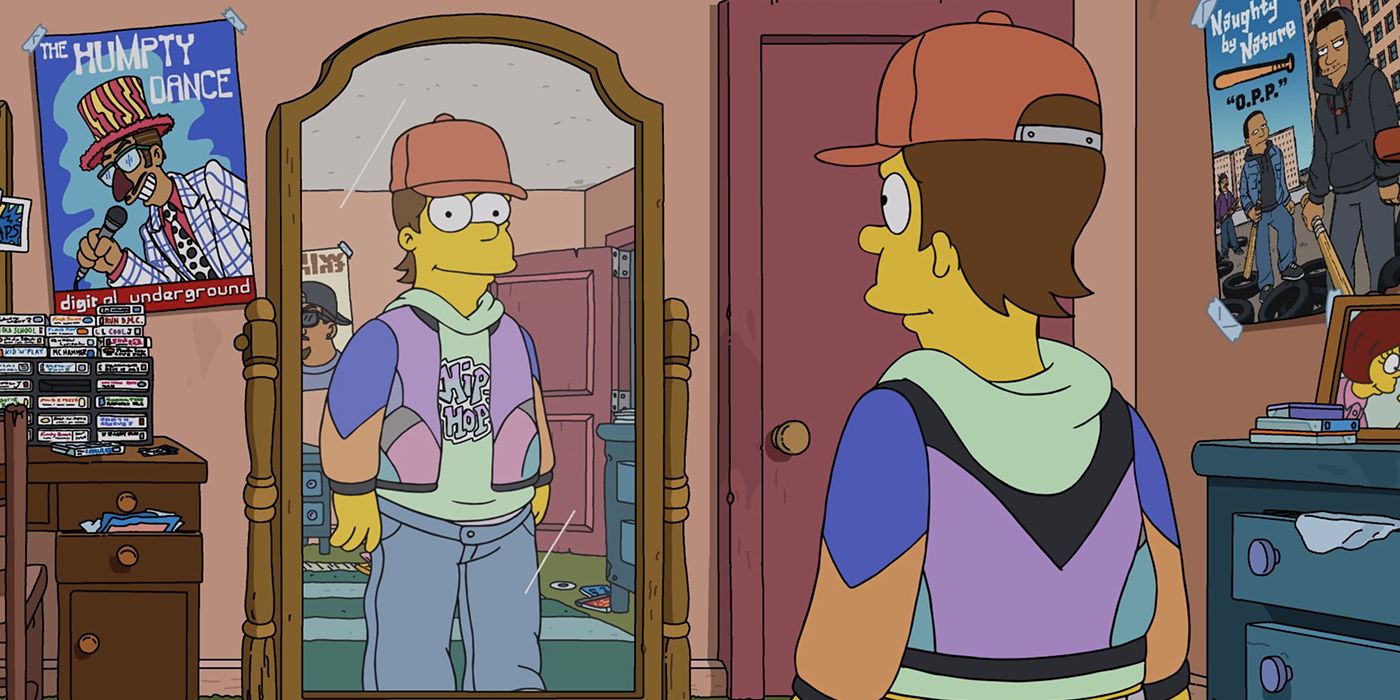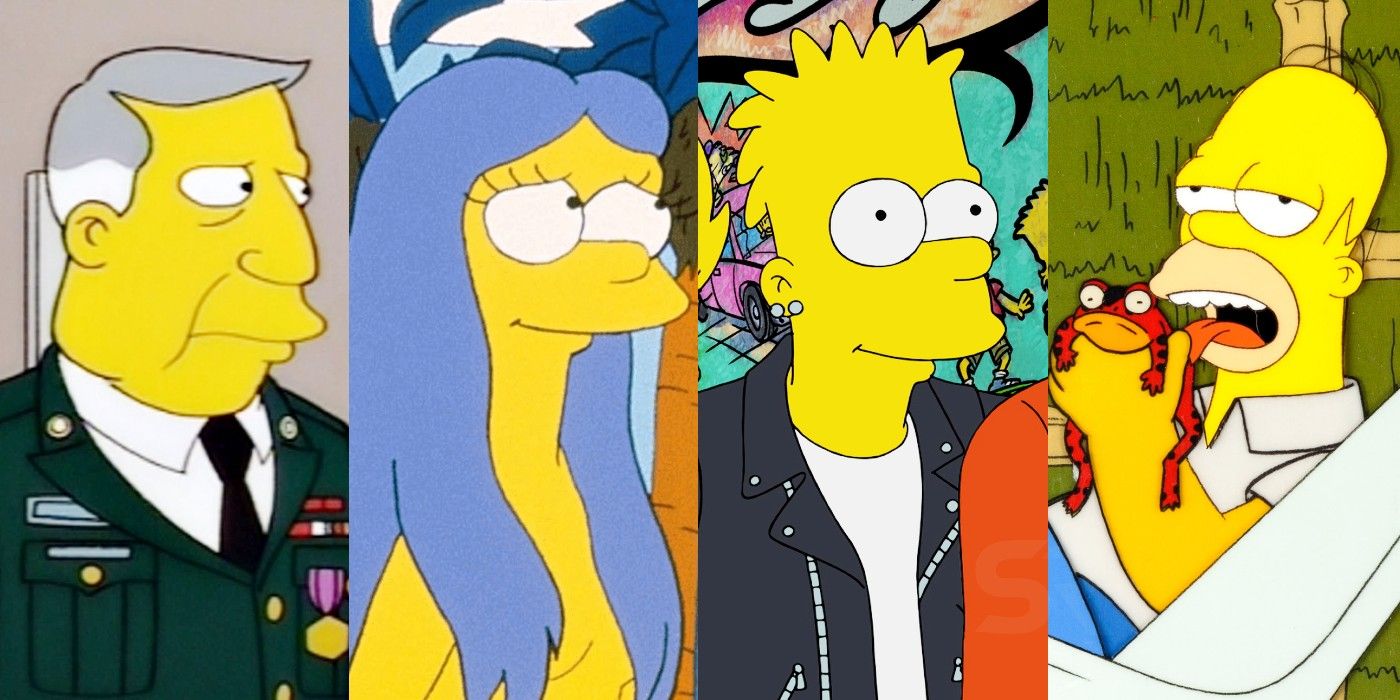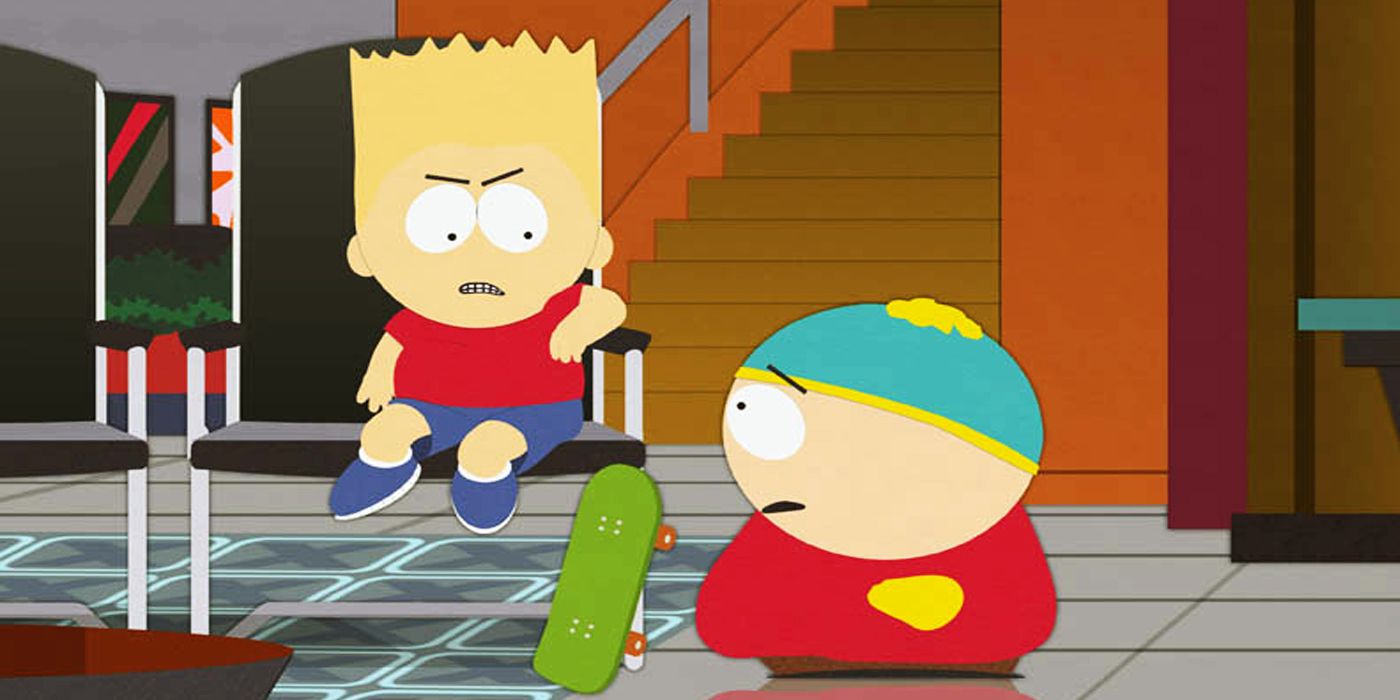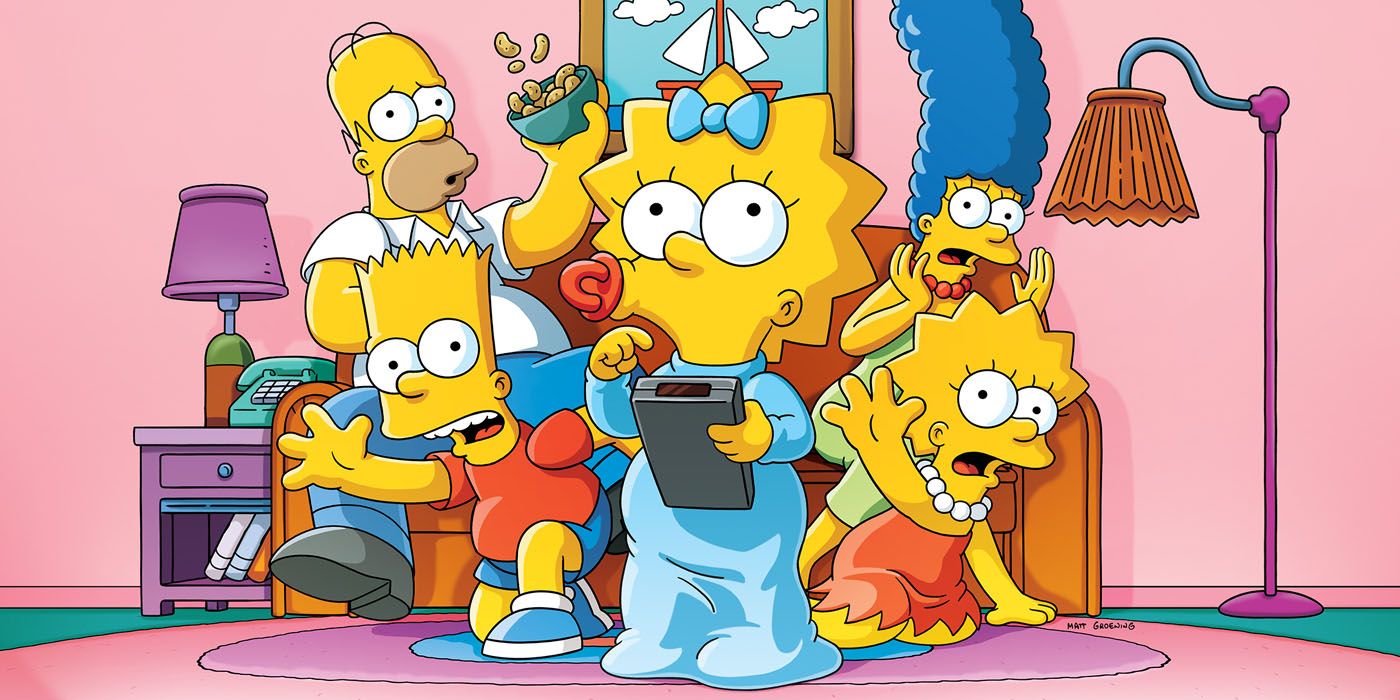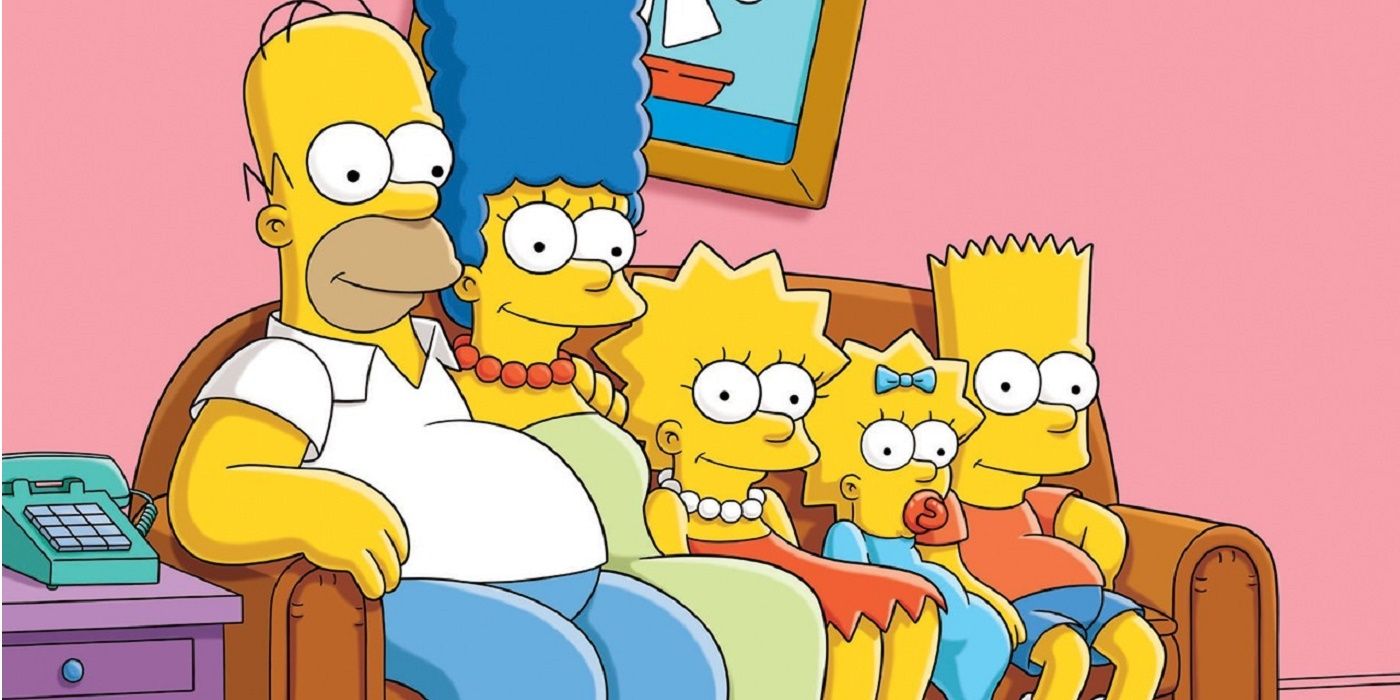An executive producer of The Simpsons recently dismissed fan annoyance about the show’s inconsistent continuity and non-existent canon, but these issues are responsible for many of the biggest issues both critics and viewers have with the show. Since the series debuted back in 1989, The Simpsons has never been overly concerned with canon or continuity. A few Simpsons characters have died and stayed dead in the show’s 32 seasons, but this handful of occurrences typically had more to do with actor availability than a desire to establish any formal canon.
Like most animated sitcoms, The Simpsons has instead played fast and loose with its own canon. This has allowed the series to pull off some hilarious moments but has also robbed The Simpsons of potential poignancy in recent years, as the inconsistent characterization and backstory make the cast of characters harder to care about. For the creators, however, the continuity of the series is evidently of no concern.
Producer Matt Selman told Simpsons fans to chill out about canon on the show, and in doing so, the executive producer hit on one of the series' biggest issues. While there is no shortage of elements contributing to the critical decline of The Simpsons (such as celebrities playing themselves) the lack of a clear continuity robs viewers of any reason to really invest in the characters. Although Selman claims the absurd cartoon comedy of The Simpsons is silly enough to preclude the need for consistency, this South Park-style defense does not make sense for a show that wants to create characters with loveable, instantly recognizable personae. A lack of continuity contributes directly to the inconsistent characterization of The Simpsons’ main players, resulting in phenomena like "Jerkass Homer" and the broader fan distaste for recent seasons of the series.
Selman’s Comments On Simpsons Canon
When an episode, "Do Pizza Bots Dream of Electric Guitars: (season 32, episode 15) depicted Homer as a teenager in the ‘90s, fans were understandably annoyed. While The Simpsons' Treehouse of Horror outings always flouted canon, the show itself has not typically taken a wholeheartedly dismissive approach to the idea of internal consistency, until now. The fan ire prompted a response from Selman, who took to Twitter to explain that:
”The Simpsons is a 32-year-old series where the characters do not age, so the 'canon' must be elastic/contradictory/silly. This does not mean other beloved classic @TheSimpsons flashback shows didn't happen. None of this happened. It's all made up. Every episode is its own Groundhog Day that only has make sense for that story (if that). There is no @TheSimpsons 'canon' or ‘non-canon.’”
Selman’s justification that The Simpsons is fictional is not only condescendingly obvious, it also hardly holds water when the series is simultaneously attempting to be an up-to-the-minute satire of cultural and social mores. The claim “it's all made up” makes The Simpsons’ then-recent critically mauled attempts at political commentary impossible to justify too as, if The Simpsons is an extravagantly silly, playful series where nothing is consistent, it would be a poor vector for meaningful satire of current events.
Why The Simpsons Can’t Use South Park’s Approach
Written to respond to each week’s world events, the extremely timely (and occasionally prescient) stories of South Park are similarly loose when it comes to the issues of canon. However, that series can pull off this approach because continuity is sacrificed for the sake of timeliness and comedic effectiveness, whereas The Simpsons has abandoned canon without any justification. The humor of the latter has grown more cartoony over the decades but audiences have never wanted the show to be Looney Tunes, so Selman’s justification does not add up. If anything, claiming there is no Simpsons canon weakens the show’s ability to make cutting satirical comments, as it excuses a lack of consistency.
The Problem With The Simpsons’ “Paradoxical Continuity”
A phrase borrowed from Selman’s tweets, the term “Paradoxical Continuity” perfectly encapsulates the issue with the (non-)canon of The Simpsons. The show, like South Park, still tries to comment on contemporary society and satirize current pop culture (as epitomized by a string of failed Stranger Things spoofs). At the same time, The Simpsons doesn’t want to be hemmed in by continuity. Without the characters having a clear age (is Homer a Boomer? A Gen X-er? A millennial?), the trends being parodied have no solid anchor, and the parodies are at best toothless.
At the time of their release, animated comedy shows that ripped off The Simpsons like Capitol Critters were accused of having no target audience, as their satire was too mild for adult viewers but confusing for children. In its recent seasons, The Simpsons seems to have borrowed this approach, however unintentionally, as the non-existent canon and PG-rated comedy makes incisive satire a rare sight. Many animated comedies like South Park or American Dad boast similarly non-existent continuity (save for the former's brief attempts at serialization), but both also boast a more mature rating and the ability to tell darker stories. This gives both series the creative freedom to make shocking, impactful jokes, while the more family-friendly likes of animated shows like Bob’s Burgers succeed by establishing a lovable cast of misfits and, crucially, containing their misadventures within a clear continuity.
Why The Simpsons Needs Canon
Despite The Simpsons influencing all of these later series, the show has failed to find its footing in the wake of its imitators' success, and its lack of continuity is central to this. If the creators want the creative freedom of series like South Park, they need to add more mature humor to The Simpsons, which is currently more cartoonish than ever. If the series hopes to re-establish the warm, PG-rated atmosphere of its early years, it needs to pay more attention to canon and give viewers a reason to care about these characters by offering a more solid, engaging backstory for them. Splitting the difference has already resulted in the continuing critical decline of The Simpsons, and the gradual loss of fan interest in what was once television’s crowning comedy achievement.

